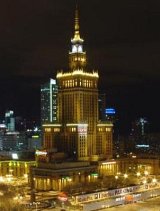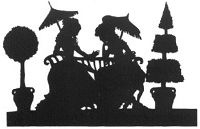The mirror stage is described in Lacan's essay, "The Mirror Stage as formative in the function of the I as revealed in psychoanalytic experience", the first of his Écrits, which remains one of his seminal papers. Some have crudely put this as the point at which the child 'recognises' him- or herself in the mirror image, but this is unfaithful to what Lacan has in mind and also confuses his terminology. Lacan's emphasis here is on the process of identification with an outside image or entity induced through, as he puts it, "insufficiency to anticipation – and which manufactures for the subject, caught up in the lure of spatial identification, the succession of phantasies that extends from a fragmented body-image to a form of its totality that I shall call orthopaedic – and, lastly, to the assumption of the armour of an alienating identity, which will mark with its rigid structure the subject’s entire mental development" (Lacan, Écrits (rvd. edn., 2002), 'The mirror stage', p. 5).
It is significant that this process of identification is the first step towards the manufacture of the subject because all which follows it – the transition into the Imaginary and the Symbolic order (see below) – is based on this misrecognition (méconnaissance): this is the process that Lacan detects as manifesting itself at every subsequent identification with another person, identity (not to be confused with 'identification') or suchlike throughout the subject's life. This is the start of a lifelong process of identifying the self in terms of the Other. What is also occasionally overlooked (especially by those writers who accuse Lacan of outright fabrication – see below) is the experiential basis of Lacan's early paper. As one writer has observed:
"To evidence concerning the role of the other in childhood – the situation known as "transitivism," for instance, where the child will impute his own actions to another – Lacan adds evidence from animal biology, where it has been experimentally shown that a perceptual relationship to another of the same species is necessary in the normal maturing process. Without the visual presence of others, the maturing process is delayed, although it can be restored to a more nearly normal tempo by placing a mirror in the animal’s cage."
(Anthony Wilden, "Lacan and the discourse of the Other" in Lacan, The Language of the Self: the Function of Language in Psychoanalysis, trans. Anthony Wilden (London and Baltimore: Johns Hopkins University Press, 1981), pp. 159 – 160.)



